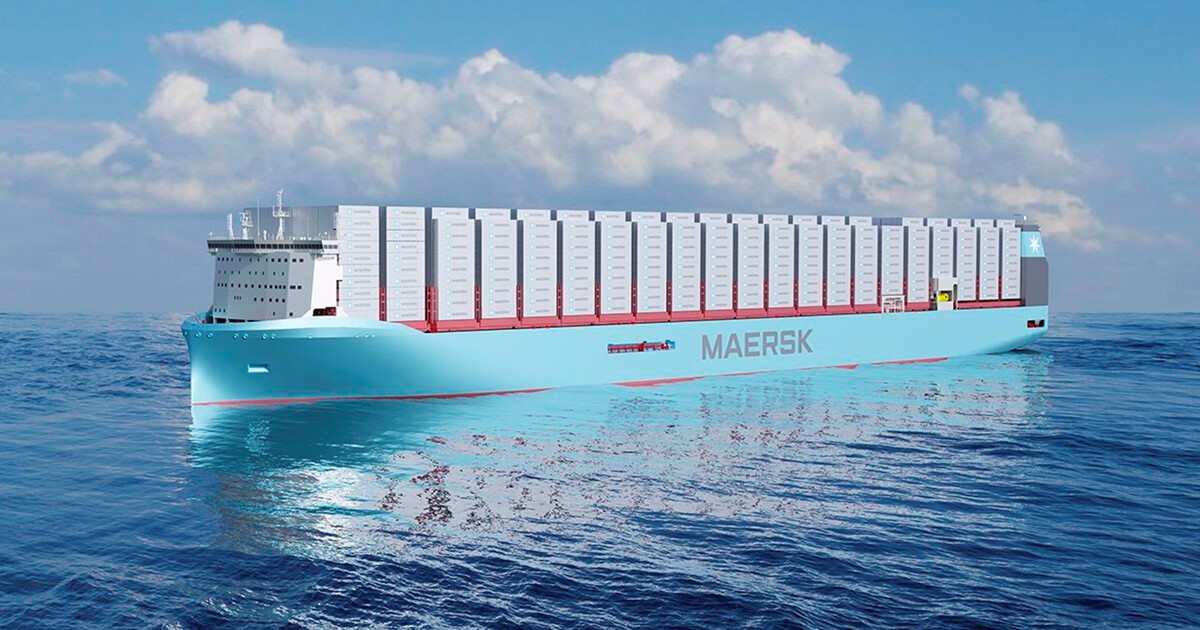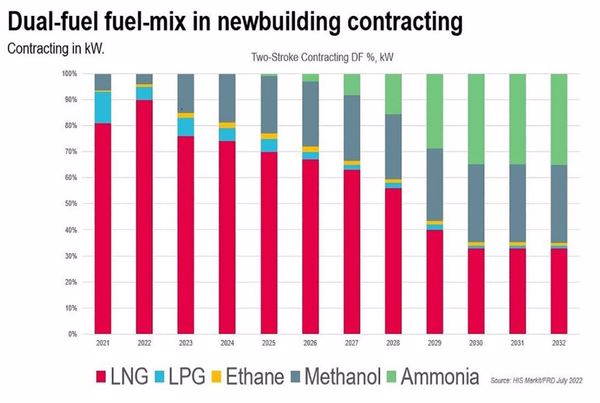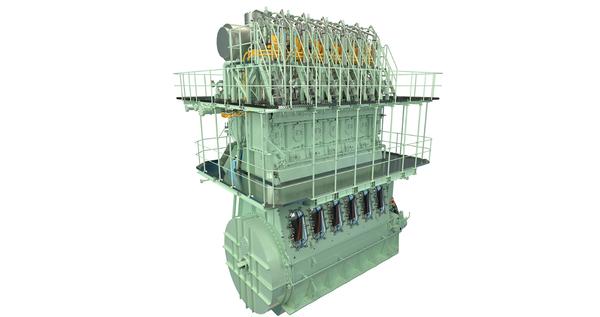MAN ES says a third of dual-fuel ship engine orders will be methanol in 'a few years'
German engine manufacturer MAN Energy Solutions (MAN ES) is expanding its presence in the methanol engine market thanks to another order from Danish shipping company A.P. Moller-Maersk.
 PHOTO: Maersk aims to operate 19 methanol-fuelled vessels by 2025. Maersk
PHOTO: Maersk aims to operate 19 methanol-fuelled vessels by 2025. Maersk
MAN ES just received another engine order for Maersk's upcoming methanol-fuelled fleet. It will deliver two-stroke dual-fuel engines that are designed to run on methanol and conventional fuels for six 17,000 twenty-foot equivalent (TEU) container ships for delivery by 2025.
Maersk has also chosen MAN ES as the engine maker for its methanol-fuelled vessels under construction. These include 12 16,000 TEU container ships for delivery by 2024, and a 2,100 TEU feeder vessel that is set to become the first in operation by 2023.
South Korean shipbuilder Hyundai Heavy Industries will build all the vessels and integrate the engines.
MAN ES claims that its dual-fuel engine provides up to 100% carbon-neutral propulsion when fuelled by green methanol.
Operators can blend green methanol with methanol produced from residual industry gases or from natural gas to create a drop-in fuel, until, eventually, lower carbon methanol becomes the main fuel.
Currently, MAN ES has 78 methanol engines on order, but Thomas Hansen, head of promotion and customer support at MAN ES predicts that within the next decade, methanol will make up about 30% of all dual-fuel engine orders.
He also projects that around 30% of its total orders will be for ammonia engines by 2032.

PHOTO: For its dual-fuel newbuild engine orders, MAN Energy Solutions estimates that 30% will come from methanol and 30% from ammonia by 2032. MAN Energy Solutions
MAN ES' director of new technology two-stroke promotion, Kjeld Aabo, says conventional methanol engines can reduce nitrogen oxide (NOx) emissions by 30-50%, with only a 10% increase in the installation costs as they can be used with existing infrastructure with minor retrofits.
Although the majority of methanol used today is still produced conventionally from natural gas, Aabo sees great potential for it to become a carbon-neutral resource for the maritime energy transition.
By Konica Bhatt
Please get in touch with comments or additional info to news@engine.online






